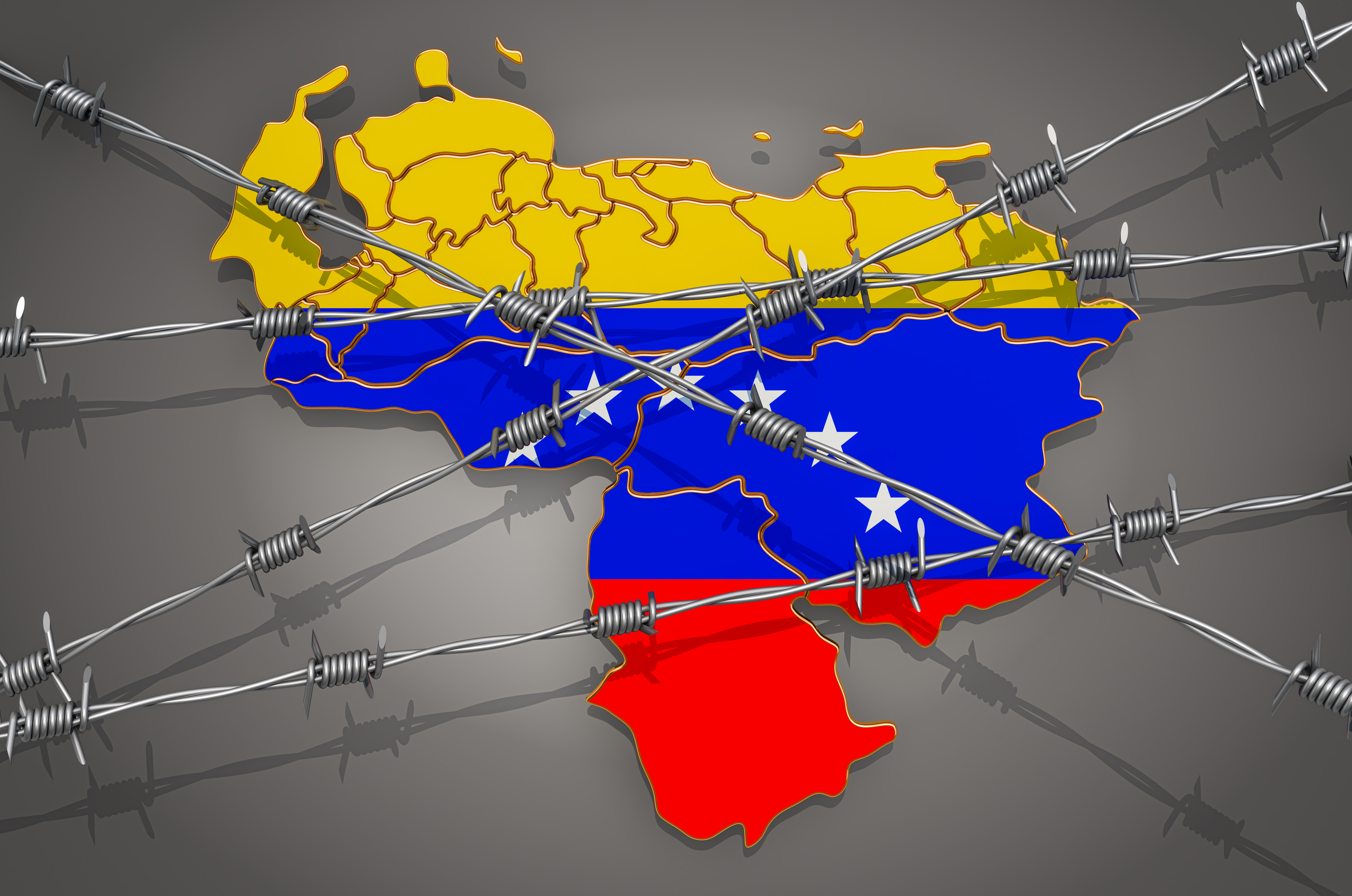When the springs do not resist: recentralization as an authoritarian strategy in Venezuela
DOI:
https://doi.org/10.18504/pl3161-001-2023Keywords:
democracy, authoritarianism, recentralization, decentralization, subnational government, venezuelaAbstract
The paper analyzes the theoretical approaches on democracy and authoritarianism and makes them dialogue with the two decades of the Bolivarian Revolution in Venezuela. It reviews the regime change during the Chavismo government (1999-present), and identifies the role of the recentralization process as a strategy in the transition towards hegemonic authoritarianism. What is the effect of recentralization and why does it serve as a fulcrum for regime change? We argue that the concentration of power, through the subordination of territorial authorities and the subjugation of local autonomy within a recentralization process, gives governments an impulse to harden their authoritarian actions.
Downloads
References
Aguilar Miranda, A. A., & Ramírez González, K. R. (2020). El reflujo del centralismo en México. En J. Mendoza Ruiz & E. J. Grin (Eds.), Federaciones de las Américas: descentralización, relaciones intergubernamentales y recentralización (pp. 477-524). Instituto Nacional de Administración Pública. https://inap-mexico.org.mx/wp-content/uploads/2020/08/Federación_de_las_Américas.pdf
Alvarez, M., Cheibub, J. A., Limongi, F., & Przeworski, A. (1996). Classifying political regimes. Studies in Comparative International Development, 31(2). https://doi.org/10.1007/BF02719326 DOI: https://doi.org/10.1007/BF02719326
Arellano, A. (2021). ¿Cambio de rumbo? La recentralización en América Latina: Venezuela y Colombia en la mira. Universidad de la República. http://dx.doi.org/10.13140/RG.2.2.21412.35206
Arellano, A. (2018). Posiciones refractarias ante el proceso de descentralización político-administrativa de Venezuela (1985-1988). En E. Mondolfi (Ed.), Aproximaciones al siglo XX venezolano (pp. 214-234). Universidad Metropolitana. https://www.unimet.edu.ve/unimetsite/wp-content/uploads/2018/02/Aproximaciones-al-Siglo-XX-Venezolano.pdf
Blanco, J. (2016). El poder totalitario: El caso de la revolución bolivariana. Revista Mad, (34), 65-105. https://doi.org/10.5354/0718-0527.2016.40615 DOI: https://doi.org/10.5354/0718-0527.2016.40615
Bonet-Morón, J. A., Pérez-Valbuena, G. J., & Ayala-García, J. (2016). Contexto histórico y evolución del SGP en Colombia. En J. A. Bonet & L. A. Galvis (Eds.), Sistemas de transferencias subnacionales: lecciones para una reforma en Colombia (pp. 83-128). Bogotá, Colombia: Banco de la República.
Brinks, D., & Coppedge, M. (2006). Diffusion is no illusion: Neighbor emulation in the third wave of democracy. Comparative Political Studies, 39(4). https://doi.org/10.1177/0010414005276666 DOI: https://doi.org/10.1177/0010414005276666
Chaguaceda, A., & Puerta Riera, M. (2017). Decadencia autoritaria en Venezuela proceso histórico y desarrollos recientes. Diálogo Político, XXXIV(2), 152-167. https://dialogopolitico.org/revista-impresa/populismo/
Cheibub, J. A., Gandhi, J., & Vreeland, J. R. (2010). Democracy and dictatorship revisited. Public Choice, 143(1). https://doi.org/10.1007/s11127-009-9491-2 DOI: https://doi.org/10.1007/s11127-009-9491-2
Gamboa Gutiérrez, A. (2020). Salud de calidad: una demanda constante en los municipios. Bien Común, XXVII(299), 43-51. http://frph.org.mx/bdigital/registro.php?id=0299
Goldfrank, B., & González Esquivel, M. T. (2020). Sistemas participativos en Brasil y Venezuela: orígenes y ocasos de dos modelos. Caderno CRH, 33. https://doi.org/10.9771/ccrh.v33i0.33251 DOI: https://doi.org/10.9771/ccrh.v33i0.33251
Jiménez, M., Vitale, S., Trak, J. M., & Aveledo, G. T. (2022). La oscilante (in)capacidad de la oposición venezolana en la disputa por el poder subnacional (2008-2022). Elecciones, 21(23), 125-160. https://doi.org/10.53557/Elecciones.2022.v21n23.04 DOI: https://doi.org/10.53557/Elecciones.2022.v21n23.04
Levitsky, S., & Way, L. A. (2002). Elections Without Democracy: The rise of competitive authoritarianism. Journal of Democracy, 13(2). https://doi.org/10.1353/jod.2002.0026 DOI: https://doi.org/10.1353/jod.2002.0026
López Maya, M. (2021). Democracia para Venezuela: ¿representativa, participativa o populista? Caracas: Grupo Alfa.
Mainwaring, S., Brinks, D., & Pérez-Linán, A. (2001). Classifying political regimes in Latin America, 1945-1999. Studies in Comparative International Development, 36(1), 37-65. https://doi.org/10.1007/BF02687584 DOI: https://doi.org/10.1007/BF02687584
Mainwaring, S., & Pérez-Liñán, A. (2014). Democracies and dictatorships in Latin America: Emergence, survival, and fall. Cambridge: Cambridge University Press. https://doi.org/10.1017/CBO9781139047845 DOI: https://doi.org/10.1017/CBO9781139047845
Martínez Meucci, M. Á. (2021). Régimen político, estado y transición: notas sobre el caso venezolano. Almanaque, 12(10), 169-201.
Martínez Meucci, M. Á. (2014). La revolución iliberal venezolana y su política exterior. Análisis Político, 26(77).
Martínez Meucci, M. Á., & Alfaro Pareja, F. (2020). Asimetría del conflicto y mecanismos alternos de diálogo y negociación en Venezuela (2002-2019). América Latina Hoy, 85. https://doi.org/10.14201/alh.21885 DOI: https://doi.org/10.14201/alh.21885
Mascareño Quintana, C. (2017). Presidencialismo autoritario contra federalismo descentralizado. Venezuela 1999-2016. Estudios Latinoamericanos, (39). https://doi.org/10.22201/cela.24484946e.2017.39.58306 DOI: https://doi.org/10.22201/cela.24484946e.2017.39.58306
Munck, G. L., & Verkuilen, J. (2002). Conceptualizing and measuring democracy: Evaluating alternative indices. Comparative Political Studies, 35(1). https://doi.org/10.1177/001041400203500101 DOI: https://doi.org/10.1177/001041400203500101
O’Donell, G. A. (1994). Delegative democracy. Journal of Democracy, 5(1), 55-69. https://doi.org/10.1353/jod.1994.0010 DOI: https://doi.org/10.1353/jod.1994.0010
Pérez Verónica, C. O. (2019). La cuarta transformación y la militarización de la seguridad pública: la Guardia Nacional. En México y la 4T, contradicciones y límites (pp. 145-156). México: ITESO. https://docplayer.es/169393341-Mexico-y-la-4t-contradicciones-y-limites.html
Schedler, A. (2006). The logic of electoral authoritarianism. En A. Schedler (Ed.), Electoral Authoritarianism: The Dynamics of Unfree Competition (pp. 1-24). Boulder: Lynne Rienner Publishers. https://doi.org/10.1515/9781685857479 DOI: https://doi.org/10.1515/9781685857479-003
Szmolka, I. (2011). Democracias y autoritarismos con adjetivos: la clasificación de los países árabes dentro de una tipología general de regímenes políticos. Revista Española de Ciencia Política, 0(26).
Szmolka, I. (2010). Los regímenes políticos híbridos: Democracias y autoritarismos con adjetivos. Su conceptualización, categorización y operacionalización dentro de la tipología de regímenes políticos. Revista de Estudios Políticos, (147).
Tamayo, D. (2021). Regímenes Híbridos de América Latina: el caso de Venezuela. UDA Law Review III, (3), 106-120. https://revistas.uazuay.edu.ec/index.php/udalawreview/article/view/406

Downloads
Published
Citas a este artículo:
How to Cite
Issue
Section
License
Copyright (c) 2023 Facultad Latinoamericana de Ciencias Sociales, sede México

This work is licensed under a Creative Commons Attribution-NonCommercial 4.0 International License.
![]() Esta obra está bajo una licencia Atribución-NoComercial 4.0 Internacional (CC BY-NC 4.0)
Esta obra está bajo una licencia Atribución-NoComercial 4.0 Internacional (CC BY-NC 4.0)










